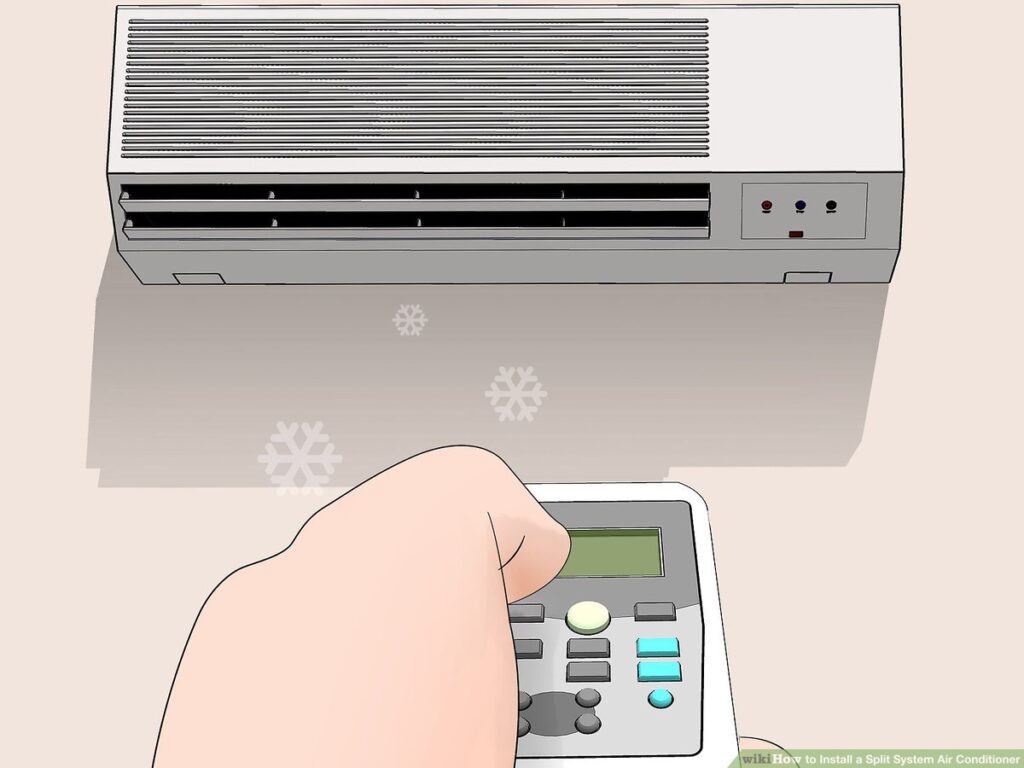An air conditioner (AC) is a device that cools and dehumidifies the air in a room or building using a refrigeration cycle. It is essential for comfort in warm climates since it allows rooms and buildings to be kept at comfortable temperatures without relying on natural ventilation.
Air conditioning units vary widely in size, from portable units suitable for cooling individual rooms to large central AC systems designed for entire office complexes or homes. Knowing what size of AC you need is essential to ensure your system runs efficiently and effectively.
Four easy steps to determine the size of the AC you will need
With just four easy steps, you can ensure that you get the perfect size air conditioner for your home.
Calculate the size of the room
The first step to finding out what size air conditioner I need is to calculate the size of my room. To do this, measure the length and width of the room in feet. Once I have these measurements, I can determine the room’s area by multiplying them (length x width = area). The result is the total area of my room in square feet.
Decide how many British Thermal Units (BTUs) per hour are required
The second step is to decide how many British Thermal Units (BTUs) per hour are required for cooling my space based on its size and layout. Generally, an air conditioner should provide 20 BTUs per square foot for a standard room with 8-foot ceilings. If any additional factors might affect cooling efficiency, like ducted fans or non-standard ceiling
Understanding climate control considerations
When choosing an air conditioner, the third step is understanding climate control considerations, which involves considering factors such as humidity levels and ceiling height. Generally speaking, for every 500 BTUs per hour of cooling capacity, the AC unit will remove approximately two pints of water from the air.
If your space is particularly humid or has a high ceiling, you’ll want to add more BTUs per hour. Additionally, if your unit is exposed to direct sunlight for most of the day, it could be beneficial to choose a larger model.
Consider energy efficiency
The fourth and final step in determining what size air conditioner I need is thinking about energy efficiency. A higher SEER rating generally indicates that the system is more energy efficient and can save money on your electricity bill over time. It would be best to read customer reviews online or talk with an HVAC professional about different models before deciding.

Finding a professional AC installer
Finding an ac installation service near me helps take the guesswork out of choosing an air conditioner. Buying a unit is a lengthy process and, if done correctly, can save money in the long run. Once I’ve selected my unit, it’s essential to install it professionally. Even with the perfect size and model, improper installation can significantly reduce its efficiency and lifespan.
An experienced technician will measure and calculate all the necessary components to ensure your system runs safely and efficiently throughout the summer months. This knowledge will help you get the most out of your new air conditioning system. you can get the best ac service
The advantages of using a professional AC installer include the following:
- Ensuring proper installation and setup of your air conditioner
- Helping you select the correct size and type of air conditioner
- Providing knowledge of energy-efficient models
- Maximizing the efficiency and life span of your system
Using an AC sizing guide
An AC sizing guide is a valuable tool to help you determine the type and size of air conditioner that best fits your home or business. It considers factors such as the size of the room, its layout, amount of sun exposure, and insulation levels. All these elements are essential in determining how well an air conditioner will cool your space.
To accurately determine what size air conditioner I need, I must use an AC sizing guide before making a purchase decision. This way, you can avoid buying a unit that’s too big or small for your needs. An undersized unit will only be able to keep up with demand on hot days, while an oversized unit may be overkill and cost more to operate.
Conclusion
Ultimately, finding out what size air conditioner I need is lengthy. These four steps will help me make an educated decision about my AC purchase. With research, I can find the perfect unit for my space without compromising quality or performance. Moreover, using a professional installer ensures that my system runs smoothly throughout its lifespan. Doing this will save short- and long-term money, providing comfort and peace of mind.





